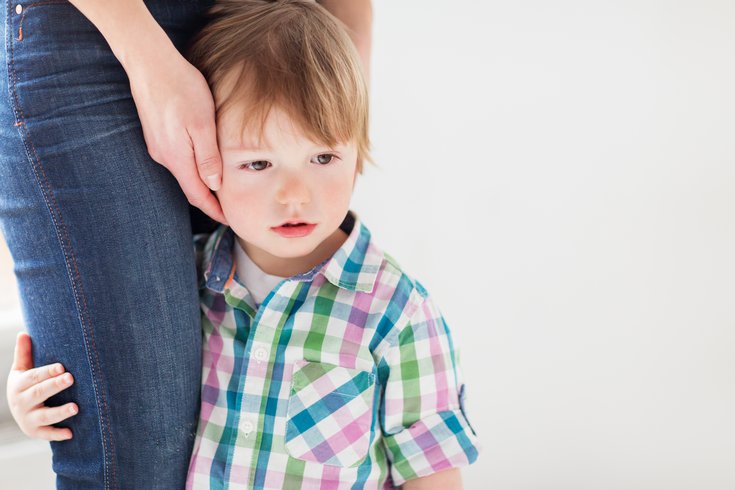
May 17, 2022
 Source/Image licensed from Ingram Image
Source/Image licensed from Ingram Image
Parents who have children with anxiety need to validate their feelings without feeding into their fears, mental health experts say.
The increasing rate of children suffering from anxiety in the United States has been a major driver of the pediatric mental health crisis.
About 5.8 million children in the United States had diagnosed anxiety disorders between 2016 and 2019, according to the U.S. Centers for Disease Control and Prevention. And since the beginning of the COVID-19 pandemic, the rates of children with anxiety have skyrocketed even further.
Children with anxiety disorders experience persistent and excessive worries that interfere with their daily lives. These disorders can range from a more generalized anxiety about everyday things to social anxiety, in which children avoid social situations because they fear doing or saying something that will get them judged negatively.
Symptoms of general anxiety disorder in children include difficulty concentrating, sleeping difficulties, bed-wetting, bad dreams, not eating properly, clinginess, avoidance of everyday activities and a lack of confidence to handle simple problems or try new things. Children with anxiety often need constant reassurance.
Some children also experience physical symptoms including using the toilet often, tearfulness, headaches, dizziness, lightheadedness, sweatiness, stomachaches, nausea, cramps, vomiting, fidgeting or body aches.
Some behaviors that might appear to be displays of disrespect can be manifestations of anxiety, including tantrums or defiance, experts say. Often children can't put their feelings into words.
While all children may experience some fear, the American Academy of Pediatrics says that when the fears escalate in frequency and intensity, occur multiple times a day or week, and interferes with every day life, parents should consult a psychologist or psychiatrist to help their child.
Left untreated, anxiety can impact both physical and emotional health. The most common type of treatment for anxiety includes cognitive behavioral therapy, a form of psychotherapy that seeks to induce change by changing thinking and behavioral challenges.
Avoiding anxiety-inducing situations can trigger a cycle that makes fears grow bigger, mental health experts say. This is why it is important for parents to help their children identify the sources of their anxiety and give them healthy coping tools to handle anxiety-inducing situations.
It is important for parents not to grill their children, Rachel Busman, a clinical psychologist who specializes in anxiety, told CNN. She recommended they ask open-ended questions like "I noticed you seemed hesitant going into that activity. What's up?" rather than "Were you scared of going in, or did you not like those people?"
Parents need to validate their children's feelings without feeding into their fears, she said. Parents should not tell their children that they have nothing to be scared about, but they also shouldn't reaffirm their worries. Though some parents' first instinct is to protect and comfort their children, that may make them more anxious.
Instead, Busman advised parents acknowledge a situation may be hard, but then remind children that they are capable of handling it.
Experts also emphasize the importance of teaching that imperfection is a part of life. However, they advise parents also to express confidence in their children's abilities to handle things that don't go as planned. Parents should reassure children that as they learn to tolerate the anxiety of uncomfortable situations, the negative feelings will decrease over time.
One way to teach children to tolerate anxiety-inducing situations is to use the Stepladder approach, according to VeryWellFamily. It requires parents create a series of small milestones for their children to achieve. If a child is afraid to sleep alone, have her try sleeping on a mattress on the floor next to your bed, then slowly move the mattress closer to the door. Then have your child fall asleep in her own bed with you in the room until finally she can fall asleep on her own in her bedroom.
Being a good role model is also essential, according to the Child Mind Institute. Parents should let their kids see them handling their own stress and anxiety in healthy ways. When a child has a particularly stressful event coming up, parents should talk through together what might happen if his fear came true and how he would handle it. If a child's is worried that his mother won't be there to pick him up after school or soccer practice, parents can discuss the steps he can take, like telling a teacher or coach.